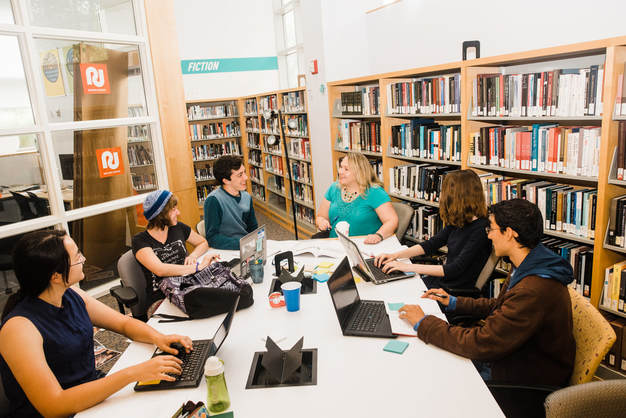|
If you’re a high school student (or a parent of one) with learning differences, you’re probably already an expert on working with your support team on an IEP, and on getting the accommodations that you need in school. But what about college? Did you know that levels of support for LD students vary across universities? This is just one of several crucial facts that every prospective college student with a learning difference needs to know when choosing a school. Here’s more:
1) Students run the process in college: Once diagnosed, a student in a primary or secondary school with an LD has the support of school counselors, therapists, parents, and teachers (to name a few), and it’s their job to make sure that you receive whatever accommodations you need. However, in college, the student is responsible for providing all necessary documentation to the school’s Office of Disability Services, and for discussing individual accommodations with professors. In other words, you are expected to be your own advocate! 2) Not all colleges provide the same support: While all universities must meet federal requirements to comply with the Americans with Disabilities Act (ADA), some schools offer better support than others. Check each school to see what services they provide and who provides them. There’s a big difference between having an un-trained peer tutor take class notes for you at a minimal-level support school, and working with a professional at a Learning Center to receive mentoring at a moderate-level support school. It’s up to each family to decide what’s the best level of support for each student, and to choose the right school that will give that assistance. 3) Students should research fee-based programs: Depending on the college, a school may offer additional help to students through fee-based programs. For example, some universities have special social support for students with autism, providing separate student housing or orientations. Other schools feature comprehensive programs specifically designed for students with learning differences, which may include coaching and organizational workshops. Check out http://www.basseducationalservices.com/ for more information. 4) Get tested BEFORE you graduate from high school: Because of federal law, primary and secondary schools are required to pay for a student’s diagnostic testing. This is NOT the case for students in college! Moreover, colleges often want “adult-level” psycho-educational testing done (meaning diagnostic testing performed on someone at least 16 years old) to qualify for Section 504 accommodations (part of the Rehabilitation Act, which, like the ADA, covers any post-secondary school that receives federal funds). For more information on Section 504, check out http://www.pacer.org/parent/504/. Having a learning difference should NEVER discourage you from going to college - there is a school out there for everyone! The more you know about what to look for in that school, the more success you’ll enjoy once you get there. Have more questions? Check out my Resources page: https://www.apluscollegeconsult.com/resources.html
0 Comments
Leave a Reply. |
AuthorMaruta Z. Vitols is an independent educational consultant in the metro-Boston area. When not helping students achieve their dreams, she enjoys hanging out with her dog, exploring new places with her husband, and doing yoga. Archives
April 2023
Categories |


 RSS Feed
RSS Feed